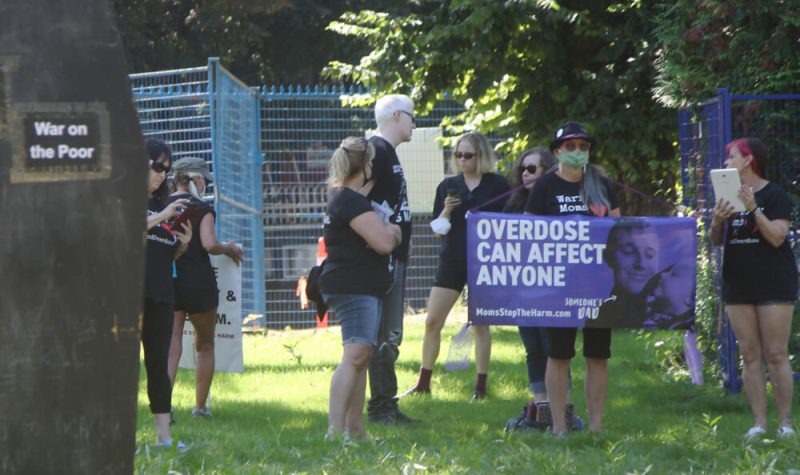David P. Ball
Moms Stop the Harm is one of three organizations that suddenly quit their provincial government advisory role Tuesday, citing failures and delays to help drug users during the pandemic.
A group of mothers whose children either died of overdoses or are addicted to illicit drugs has announced it's quitting its role as an advisor to the British Columbia government's overdose strategy.
Leslie McBain, co-founder of Moms Stop the Harm, said too little was being done towards the key demand of providing a safe, prescribed supply of drugs to substance users – despite some promising first steps to fund treatment and allow some drugs to be prescribed during the pandemic.
Tuesday also saw the province hit another grim milestone, setting the second-highest number of overdose deaths in new coroner's data for July, with 175 killed that month, just slightly behind the historic record of 177 in June.
That's equivalent to 5.6 dead a day, compared to under three the same time last year, after years of gradual decline in fatalities.
"It's heartbreaking and having lost my son to overdose, and knowing what that heartbreak is, I know there's five families every day out there feeling the same thing," McBain told The Pulse on CFRO. "Why are we not getting a safe supply out there in a low-barrier, accessible way for people.
"We need to have recovery beds, but what we we need is an announcement that we're going to implement a better safe supply so people don't die."
The province's mental health and addictions minister, Judy Darcy, said her government is doing everything it can, including doubling the number of treatment beds for youth, allowing doctors to prescribe pharmaceutical version of some street drugs during the COVID-19 pandemic, and increased funding for overdose prevention sites.
"We have been working flat-out to reduce overdose deaths since we formed government," Darcy said in a statement Tuesday. "Since COVID-19 hit, we have escalated our response to counter the effects of the pandemic and to get more people on a path to treatment and recovery … Efforts to save lives were making a difference."
But McBain's group as well as the BC/Yukon Association of Drug War Survivors, and the BC Association of People on Opioid Maintenance all released a joint letter Tuesday, just as the latest statistics were released as part of a BC Coroner's Service report on drug deaths.
The groups stated that years of "meetings went nowhere" with government, and they resigned after waiting 10 days for a response to a letter to the Provincial leadership stating "they won’t return until the Premier and cabinet commit to confronting the overdose crisis with the sense of boldness and urgency that they used with COVID-19," the open letter stated.
"We’ve been begging for the same action since day one," said BC/Yukon Association of Drug War Survivors President Hawkfeather Peterson in a press release. "We need more than Band-Aids — we are hemorrhaging family and friends.
"While we’ve made progress in treating overdoses, we must prioritize preventing them," Peterson added.


